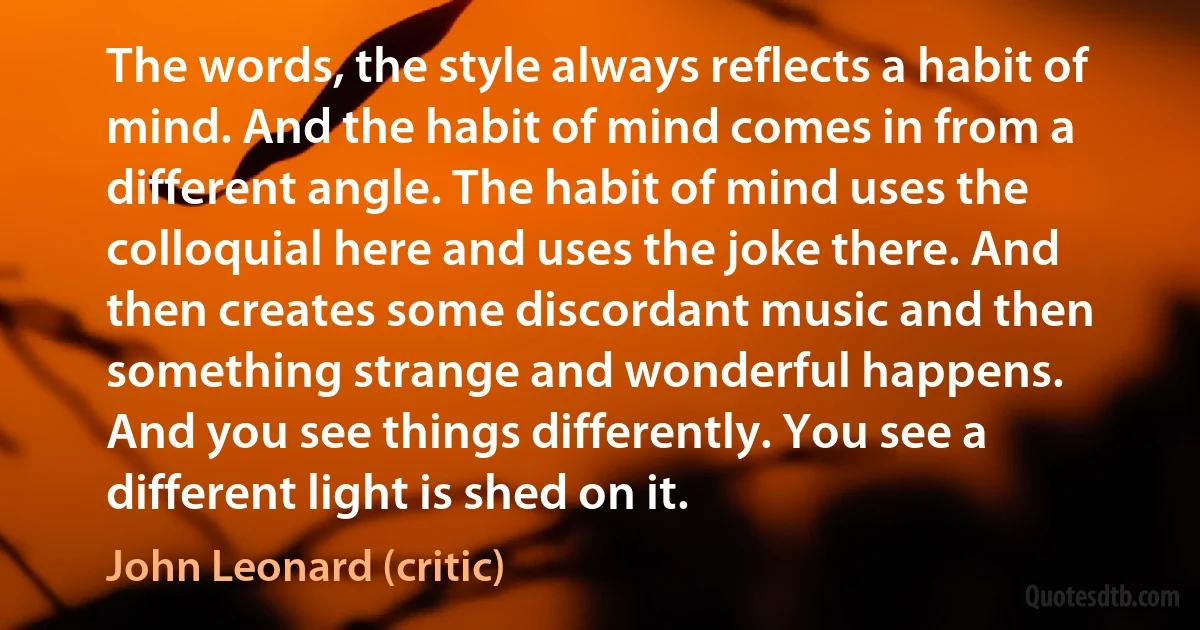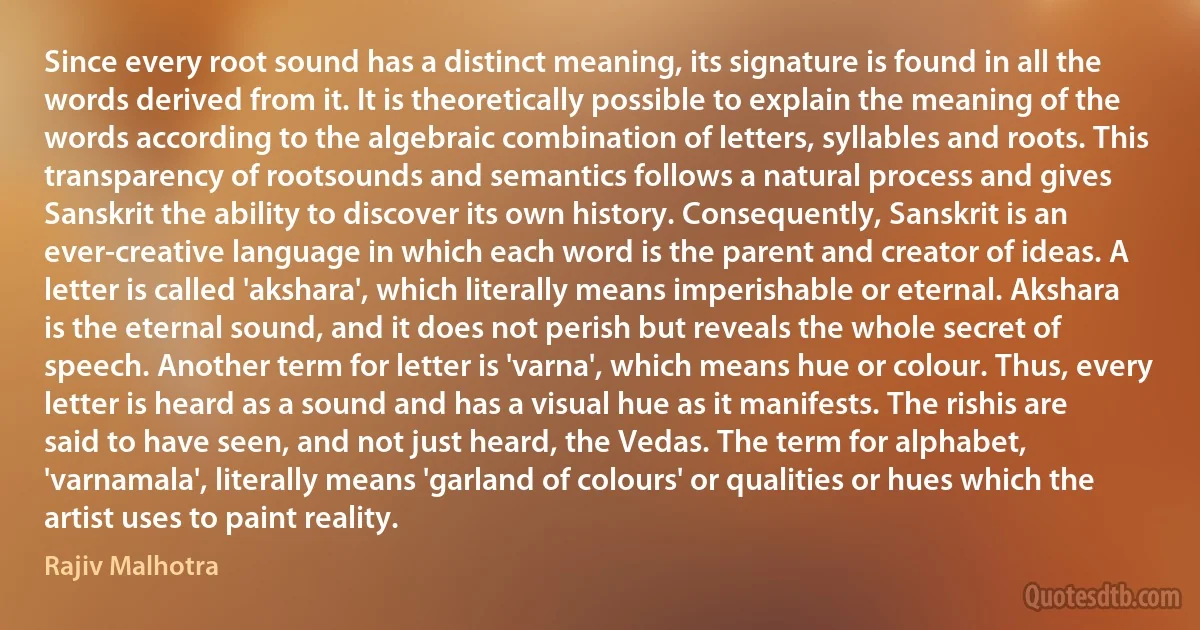Uses Quotes - page 29
My administration will also protect a woman's access to medications that are approved by the Food and Drug Administration - the FDA - like contraception, which is essential for preventative healthcare; mifepristone, which the FDA approved 20 years ago to safely end early pregnancies and is commonly used to treat miscarriages.Some states are saying that they'll try to ban or severely restrict access to these medications. But extremist governors and state legislators who are looking to block the mail or search a person's medicine cabinet or control a woman's actions by tracking data on her apps she uses are wrong and extreme and out of touch with the majority of Americans.

Joe Biden
This is believed to be the completest list of this voluminous, prosiack, and driveling monk, that can be formed...in truth, and fact, these stupid and fatigueing productions, which by no means deserve the name of poetry, and their stil more stupid and disgusting author, who disgraces the name and patronage of his master Chaucer, are neither worth collecting (unless it be as typographical curiositys, or on account of the beautyful illuminations in some of his presentation copys), not even worthy of preservation: being only suitablely adapted "ad ficum & piperem," and other more bare and servile uses. How little he profited by the correction, or instructions of his great patron is manifest in almost every part of his elaborate drawlings, in which there are scarcely three lines together of pure and acurate metre.

Joseph Ritson
I mean the permissive, metropolitan liberalism which uses the language of protest, progress and the open mind but which has by now become orthodox, predictable and is in many cases the mindless slogan of empty minds. Above all I mean the liberalism which over the last twenty years has encountered virtually no opposition and for which the events of the last six weeks have come as a particularly nasty revelation of the state of public thinking.

Maurice Cowling
A Marxist or Trotskyite interpretation of history raises the question of hegemony or class power in its simplest form, uses the theoretical possibility of revolution to dramatise class-dominance, and promises insights into the unspoken attitudes of the elites and classes which have exercised power in modern England. This promise is unlikely to be fulfilled, however, when there is no attempt to appreciate either the mixture of motives among the "rich swine" or the fact that in most modern societies some of the "rich swine" were once poor swine, and when there is no grasp of the central truth that hegemony and inequality are necessary for cultural and economic development and for social and political stability and freedom, and are in any case the invariable consequence of revolution once revolution has produced new classes or elites to replace the classes and elites which it was designed to overthrow.

Maurice Cowling
Now for the third quality. For a long time I couldn't make out what Aquinas meant. He uses a figurative word (a very unusual thing for him) but I have solved it. Claritas is quidditas. After the analysis which discovers the second quality the mind makes the only logically possible synthesis and discovers the third quality. This is the moment which I call epiphany. First we recognise that the object is one integral thing, then we recognise that it is an organised composite structure, a thing in fact: finally, when the relation of the parts is exquisite, when the parts are adjusted to the special point, we recognise that it is that thing which it is. Its soul, its whatness, leaps to us from the vestment of its appearance. The soul of the commonest object, the structure of which is so adjusted, seems to us radiant. The object achieves its epiphany.

James Joyce
I feel very much like Dirac: the idea of a personal God is foreign to me. But we ought to remember that religion uses language in quite a different way from science. The language of religion is more closely related to the language of poetry than to the language of science. True, we are inclined to think that science deals with information about objective facts, and poetry with subjective feelings. Hence we conclude that if religion does indeed deal with objective truths, it ought to adopt the same criteria of truth as science. But I myself find the division of the world into an objective and a subjective side much too arbitrary. The fact that religions through the ages have spoken in images, parables, and paradoxes means simply that there are no other ways of grasping the reality to which they refer. But that does not mean that it is not a genuine reality. And splitting this reality into an objective and a subjective side won't get us very far.

Niels Bohr
McGraw was an improviser, a teacher. He brought much to the game that keeps baseball fresh and suspenseful today-the hit-and-run play, the steal, the squeeze play, the uses of the bunt and the defenses against it. He helped turn the game into a thing of fluid beauty, infielders charging the plate or roaming far from their bases, outfielders moving with each pitch, racing in for base hits before them, backing each other in the outfield, entering the infield itself on rundown plays. Yet when the game changed radically, with the introduction of the livelier baseball, McGraw naturally shifted to a power emphasis, founding his team about such men as George Kelly, Bill Terry, Mel Ott. He knew, too, that the old pitching style of permitting a man to hit a deadened ball because it would then be caught in the big fields had to be changed, and his staffs led the league year after year in strikeouts, in earned-runs.

John McGraw
This book contains quite a few references to Nazi Germany, and there is a tendency for many people to discount such comparisons because they are so overused and often in simplistic and inappropriate ways. I am no less tolerant of such facile uses of a horrific set of events; and I find their overuse an insult to the memories of the victims. But I am using it rather extensively in this book precisely because the parallel is appropriate, certainly in the similar end foreseen by Islamists for Bengali Hindus and Nazis for Jews. If that recognition awakens the world to action, then this will be one of the most important uses of the comparison since World War II. (6-7)

Richard Benkin
Like so many other male writers, Singer sees the world as essentially male-centered and clearly views women as "other"-separate, subsidiary, apart, alien. He betrays a deep mistrust, revulsion and hostility toward women, especially those who stray in any way from their prescribed roles or cease to organize their lives around men. Singer portrays women almost entirely as the sum total of their biological functions and in terms of their relationships (or lack of them) with men. He uses physical details of women's bodies as signposts of their personalities.

Isaac Bashevis Singer
Egoism, as Stirner uses it, is not opposed to love nor to thought; it is no enemy of the sweet life of love, nor of devotion and sacrifice; it is no enemy of intimate warmth, but it is also no enemy of critique, nor of socialism, nor, in short, of any actual interest. It doesn't exclude any interest.

Max Stirner
Woodrow Wilson has now joined his worthy colleagues in the jingo movement, echoing their clamor for preparedness and their howl of "America for Americans." The difference between Wilson and Roosevelt is this: Roosevelt, a born bully, uses the club; Wilson, the historian, the college professor, wears the smooth polished university mask, but underneath it he, like Roosevelt, has but one aim, to serve the big interests, to add to those who are growing phenomenally rich by the manufacture of military supplies.

Emma Goldman
If we consider further the manifold relations of this mathematical theory to civil uses and the technical arts, we shall recognize completely the extent of its applications. It is evident that it includes an entire series of distinct phenomena, and that the study of it cannot be omitted without losing a notable part of the science of nature.
The principles of the theory are derived, as are those of rational mechanics, from a very small number of primary facts, the causes of which are not considered by geometers, but which they admit as the results of common observations confirmed by all experiment.

Joseph Fourier
I think one has to be rather cautious about accepting as absolute the alternatives peaceful stagnation and violent revolution. There's also a possibility of spontaneous revolution that uses both violence and nonviolent tactics, that minimizes the use of terror except as necessary in defense.

Noam Chomsky
The functional importance of the ego is manifested in the fact that normally control over the approaches to motility devolves upon it. Thus in its relation to the id it is like a man on horseback, who has to hold in check the superior strength of the horse; with this difference, that the rider tries to do so with his own strength while the ego uses borrowed forces. The analogy may be carried a little further. Often a rider, if he is not to be parted from his horse, is obliged to guide it where it wants to go; so in the same way the ego is in the habit of transforming the id's will into action as if it were its own.

Sigmund Freud


